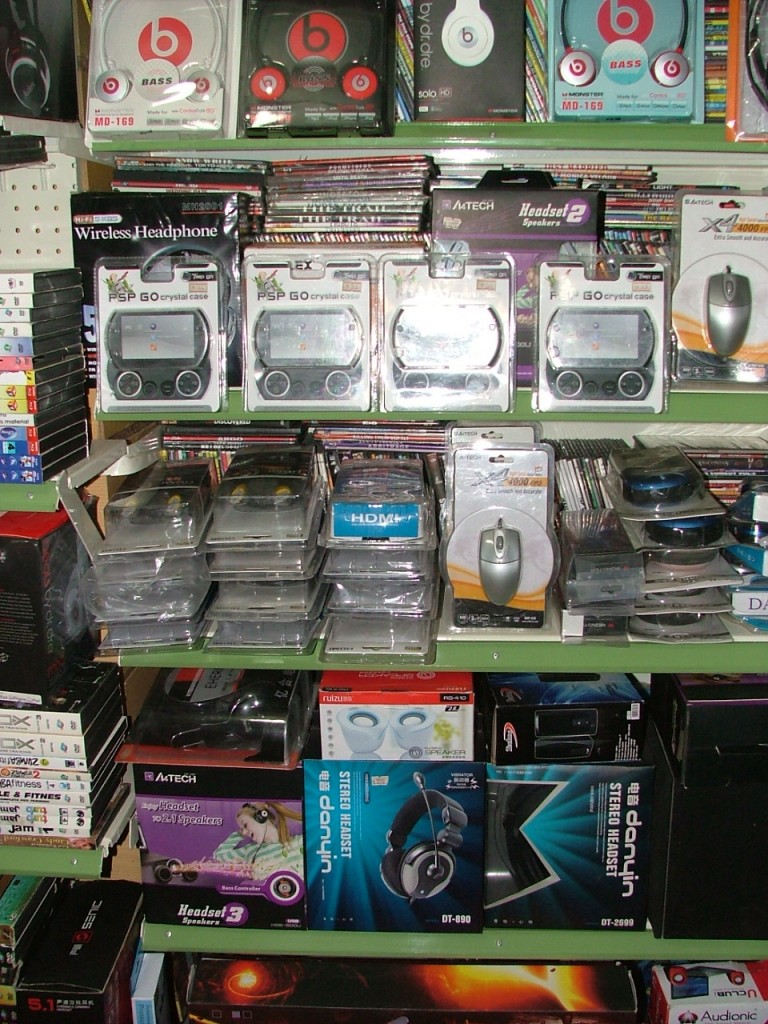A Local Shop Owner’s Perspective: Games in Pakistan
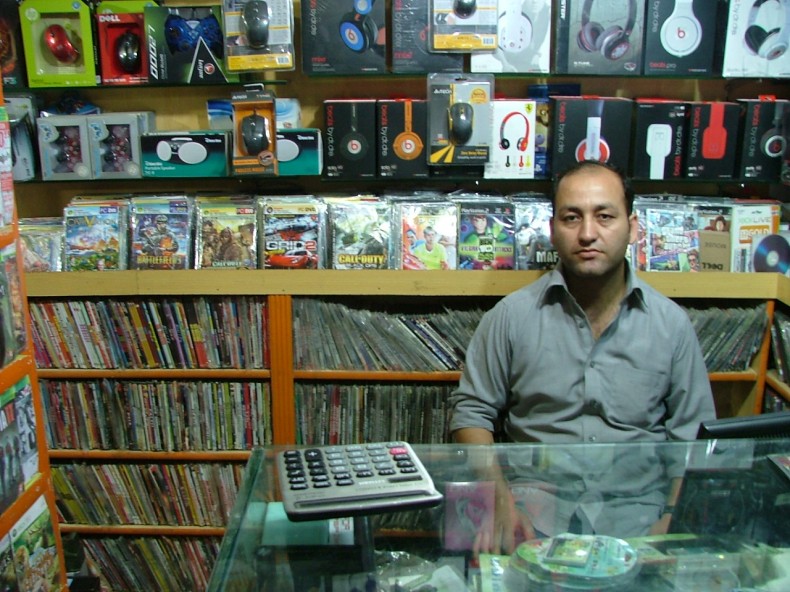
Pakistan: Some of us know the country as a hostile and unfriendly land, as conveyed to us by the media, and some only via singleplayer and multiplayer maps in Call of Duty MW 2, Black Ops 2, Medal of Honor: Warfighter, and other games. But in reality, Pakistan is a country of around 180 million people, primarily Muslim, and knee-deep in imputation in the eyes of the world, and even some of its people. We know it as a country that has a faced a multitude of issues, whether they be economical, political, or social in nature, and has confronted these problems, often with determination, and sometimes with indifference.
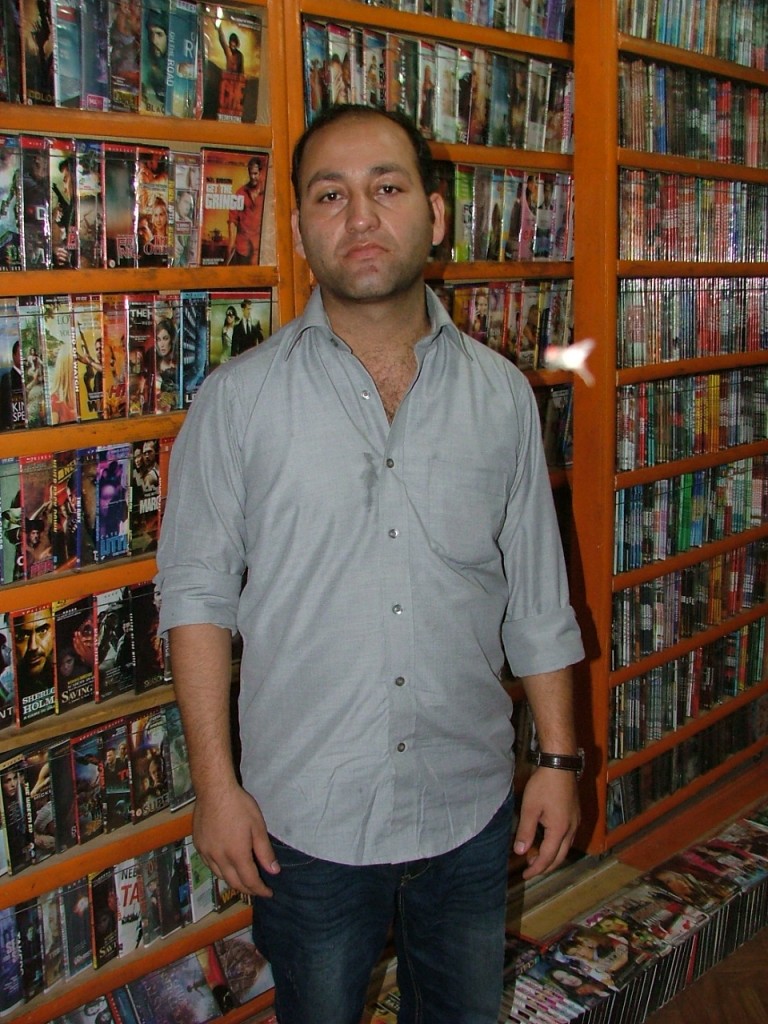
Noman, posing in front of his merchandise. The pictures belies the temperature in the store: it was HOT!
Yet, even though the rest of the world thinks that they have a firm grasp on Pakistan’s socio-political environment, religious tendencies and a pre-determined picture of how the average Pakistani thinks, lives, and strives for, the real country and its people are just as complicated and diverse as any other, and are, unfortunately, mired in the preconceptions of the rest of the world. Some countries just can’t catch a break sometimes, especially when they’re being highly criticized by people who’ve never walked a day in the rugged and worn sandals of the average Pakistani.
But I digress. Socio-political commentary aside, there are also deep gaming communities and enthusiasts rooted in Pakistan. Games sell there as well as they do in any other country, and gamers take it upon themselves to enjoy the games that they play, regardless of the load-shedding (planned electrical outages), heat, and the general hustle and bustle of an average day’s routine. PC and console games are equally embraced, and are bought in droves from the average Pakistani video shop (these shops sell games, movies, music albums, gaming and electronic peripherals).
On one of my trips to Islamabad (the capital of Pakistan) I decided to interview an owner of one of these video stores that I so often frequent, to get a shop owner’s perspective on gaming in Pakistan. I mean, seriously; who better to parley with than a guy who sells these games 8-12 hours a day. If anyone has an ear to the ground about game-buying trends in that country, it has to be him.
So I caught up with Mohammed Noman Abassi (“Nomanâ€) when he had some free time to talk. That was already hard enough to do, considering we had to coordinate a perfect window between the load-shedding schedule, prayer times, and slowdown in customer traffic to his store, located in a basement area just beneath the more trendy clothing stores and cart-wallahs (selling antique jewelry and other knick-knacks outside regular shops). We walked over to the outdoor Gol Market area, a food court of sorts, in Jinnah Super (market). I bought him and I some soda (a carbonated and salty made-on-the-spot lemon/lime drink), and we sat down under a parasol, somewhat shaded from the sweltering 117 degree Fahrenheit heat, and proceeded into the interview proper:
So, how long have you been running this store?
My brother opened the store about 10 years ago, and I’ve been helping him run it ever since. We started with selling movies and music CDs, and later on added games to sellable items, soon after we opened the store.
Out of your customers, how many are not from Pakistan?
Around 30% – 35% of my customers are either visiting from other countries, or have relocated here, and come by to buy games and other media on the cheap.
Do you sell consoles as well?
Yes, we sell other systems, such as the PS2, PS3, and the Xbox 360. All of them are modded systems except the PS3.
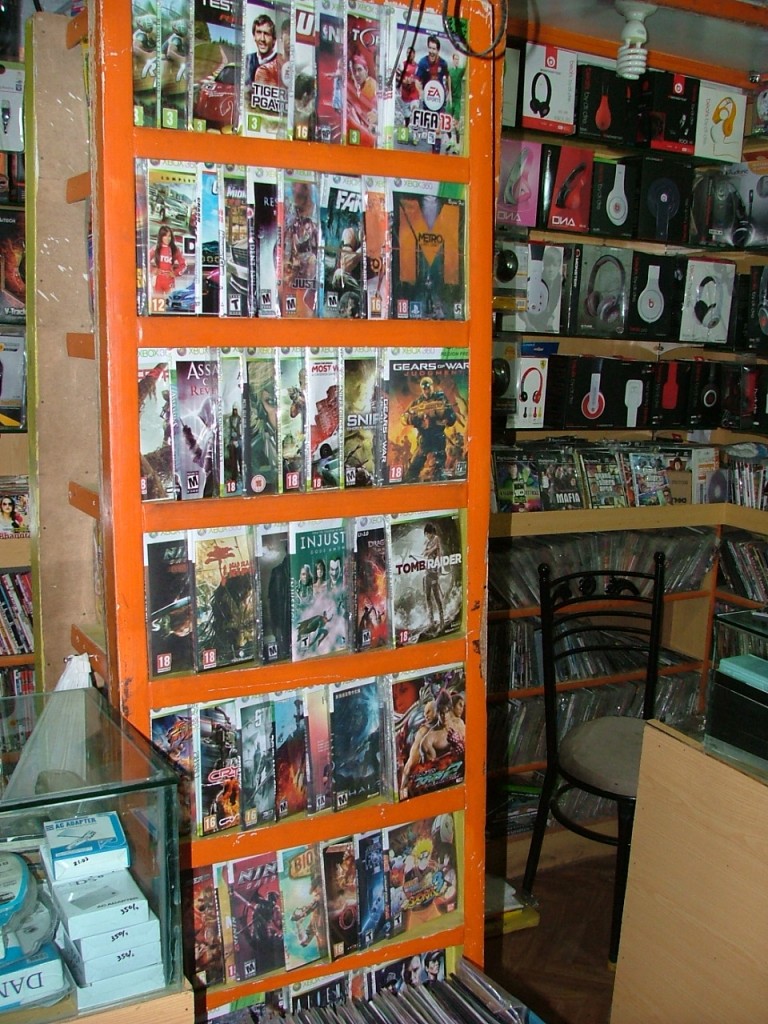
As you can see, “backups” (pirated games), are quite popular in Pakistan. Almost every new game that comes out has a backup copy available for sale within a couple of days of its official release.
No Wii or WiiU consoles?
No, we don’t sell those. You can only find those (and most unmodded standard consoles at the higher-end electronic boutique stores). Wii/WiiU consoles and games don’t really sell that well in Pakistan. The demand for Nintendo consoles is very low from what I’ve seen in the market, and personally, by what customers ask for.
What about the games?
We sell mostly PC, PS2, and Xbox 360 games. Almost all those are “backup†titles. The only originals we keep on hand are PS3 games, since we usually don’t get in any modded PS3 consoles. If anyone wants any original Xbox 360 games, we have to special order them in from our distributors.
So don’t you guys get into a lot of trouble selling these “backup” games?
Not really. Almost every store in Pakistan that sells pirated games, also sells pirated movies and burned music. We rarely, if ever, get flagged for selling pirated material. Every video store in Pakistan sells these items, even in India, Bangladesh, Sri Lanka, and other countries. I think movies and music would be a bigger concern for authorities. Pirated games, even though they’re very popular, aren’t really what authorities are after, at this time.
But, a few years ago, there was a local investigation by authorities (police officers and special agents), and I think Illusions (a bigger electronics boutique store in Jinnah Super) was fined to the tune of 2 to 2.5 crores (20 to 25 million rupees), and because of that, authorities also looked at the surrounding shops in the area, but we just received warnings, and after that, no authorities ever came back to follow up with any of the stores. It was actually due to them (Illusions) making pirated copies of Pakistani TV dramas. Most of us were selling the originals, whereas Illusions were selling the pirated versions.
Wii/Wii U consoles and games don’t really sell that well in Pakistan. The demand for Nintendo consoles is very low from what I’ve seen in the market, and personally, by what customers ask for. Noman
What about the effect of the Internet; how are the faster ISP speeds available now (Pakistan has had faster DSL ISP providers crop up within the past couple of years) affecting your business of selling games, movies, music, etc.?
Yeah, that’s hit us tremendously. We’ve lost about 60% of sales ever since higher speeds have gained in popularity and use. It’s hurt our sales of movies more than anything else, as people would just as well download a movie now, or watch it online. Our game sales were also hit as well, but not as much, as customers would rather just walk to our store and pick up their favorite game, instead of waiting hours and hours to download it. And we ourselves don’t burn backups (games); they come in ready-made via domestic distributors and some abroad, like Malaysia (much better quality backups, which sell better). Plus, with the electricity going out all the time (sometimes every other hour), can you imagine the number of times a game download would be interrupted for people not running UPS’s or backup generators?
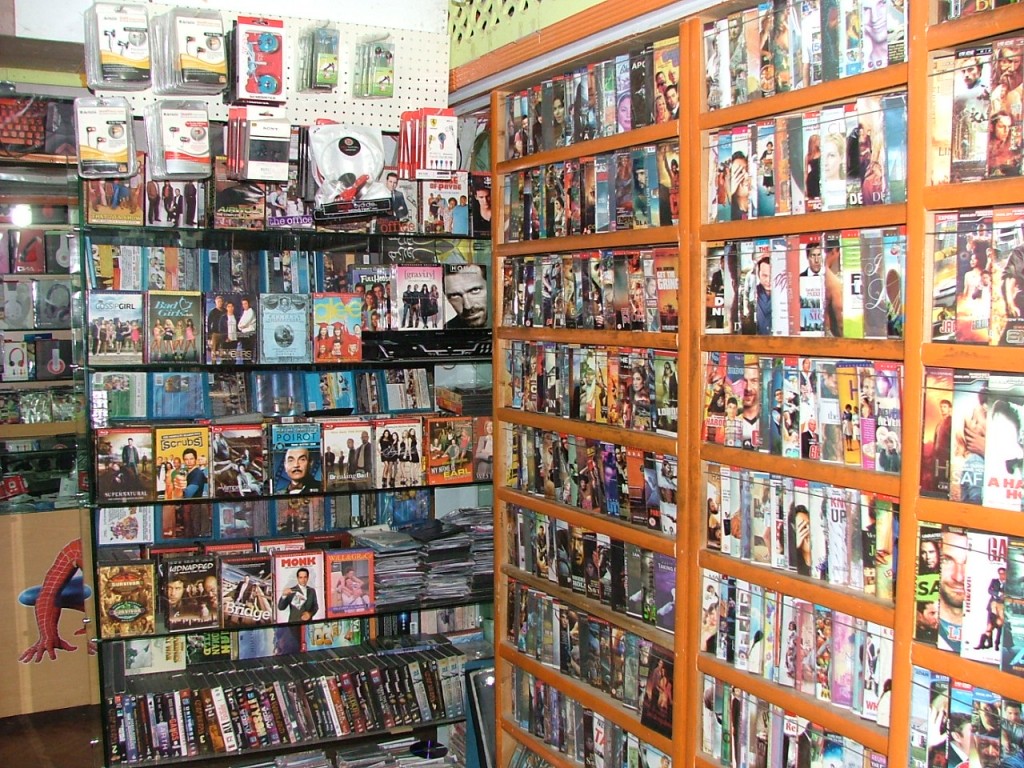
Just about every film or TV show that’s ever come out on DVD and Blu-ray, the store will have on hand, and if they don’t, a special request to their distributor will bring it to the store within a few days.
So do you know many people personally, who play a lot of video games?
Yes, of course. Almost everyone I know plays games in some fashion or another. Console, phone, computer games, and they play by themselves, in LAN parties, etc. Almost everyone I know does. Even I myself do on occasion.
Okay my last question is a long one: What would you think if Microsoft, Sony, and maybe even Nintendo, addressed the pirating issue in Pakistan and stated that they would start selling games at a reduced price, say at half the cost it is now (a $60 game currently costs around Rs 6000; and backup games sell for around Rs 150 – 600, at the most), or maybe even Rs 2500? And you have to take into consideration that most games these days have a multiplayer component that is as prominent and important as the single-player portion. Getting a backup game rarely allows you to have fun with multiplayer, and forget about playing on Xbox Live; it’s not happening. Considering that an original and authentic copy of a game, at a reduced price, would give you the whole game, how would you think the market would react?
(Editors Note: The current exchange rate is approximately 102.20 Pakistani rupees for 1 US dollar).
Only if they are in the range of Rs 1000 – Rs 1500, would people think of buying originals. But any amount over that, the games just won’t sell. Like I said before, the PS3 games that we sell are completely original and legal, and sometimes we sell used PS3 games for around Rs 1500-2000, and they still don’t sell. Only when stick around the magical price point of Rs 1500, do we see any activity in customers buying the games. If the price is around Rs 1000 for original games, around 70% of my customers would probably end up buying it. Rs 2000 and up, maybe 30% of them would, and of that 30%, most would be foreigners (because they usually can afford it more easily than the average Pakistani customer).
Again, it comes down to Microsoft, Sony, and Nintendo realizing that if they just lower the price point of games in Pakistan and other countries in the sub-continental area (Bangladesh, India, Nepal, etc), people would buy them, and they’d take care of the piracy problem that they’re so worried about, in one fell swoop. Noman
So say that MS, Sony, and Nintendo set game prices to Rs 1500 ($15), and they are completely original, legal copies, therefore customers here would be able to enjoy the single-player and multiplayer components of their games legally; would the games sell?
Absolutely YES.
Therein lies another problem: Loadshedding. How can people play their games when there is a constant issue of the electricity going out every few hours or so, sometimes even every other hour. How do people cope with that?
People have UPSs (usually car/truck batteries configured in parallel), or they have generators. They cope just fine. It’s a way of life over here!
Anything else you would like to add, Noman?
Yes, I have a comment about the new consoles coming out (PS4, Xbox One). A lot of customers have seen the videos and promotions for these new systems, and the first comments they make are “all these games will probably sell for Rs 6000 ($60) or up; how the heck are we going to be able to afford them?â€, especially considering that MS and Sony will be pushing some pretty innovative and stringent anti-piracy measures? People just won’t buy any games in this country until the consoles have been hacked, and backups can be played on them. Again, it comes down to Microsoft, Sony, and Nintendo realizing that if they just lower the price point of games in Pakistan and other countries in the sub-continental area (Bangladesh, India, Nepal, etc), people would buy them, and they’d take care of the piracy problem that they’re so worried about, in one fell swoop.
Noman, thank you for your time.
You are welcome.
